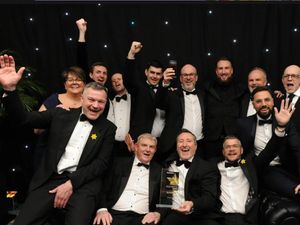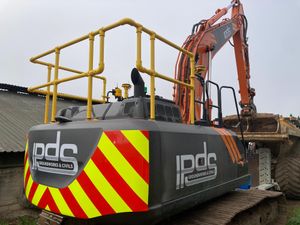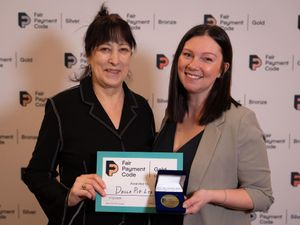Manufacturer aims to help more women gain skills
A manufacturer has formulated a plan to grow her business and help more women gain the skills and knowledge needed to thrive in the sector, supported by Lloyds Bank.
Starting with just £70 and a passion to help people suffering skin issues, Uhuru Botanical manufactures plant-based skin care and beauty products using ingredients from South Africa. The Wolverhampton-based business launched in 2017 from the founder’s kitchen table, after formulating her own natural products to treat her baby daughter’s eczema.
Despite trying several market-leading brands, nothing seemed to help the issues experienced by her daughter or her friend’s children. That’s when the founder and chief executive Neo Chatyoka realised there was a gap in the market to produce natural products that could help relieve an array of skin ailments.
Neo taught herself the formulation, branding and testing skills before launching her own business, Uhuru Botanicals. She now sells her products including hair butter and face cream to thousands of customers across the UK via her website and Amazon and has plans to expand into Australia and North America.
With orders coming in fast, the business needed to buy new manufacturing equipment and scale its operations to capitalise on the growth opportunity. Lloyds Bank provided financial capital that was used to help Neo fund new machinery and move from her garage to a factory in Wolverhampton in 2023.
Above the day-to-day operations of the business, Neo has also established the Formulation Academy to teach other women about formulation, product development and manufacturing. A key part of the academy will be the development of a first-of-its-kind AI formulation tool designed to reduce waste and time by testing ingredient formulations using new technology. This will soon be available to her students to help them better understand the entire manufacturing process.
Neo has benefitted from several Lloyds Bank programmes that are designed to improve business skills and build networks. She participated in Lloyds Bank’s ‘Start Up, Scale Up’ programme, which helps small businesses identify its target audience and the steps needed to grow. It was here that she was introduced to inclusive entrepreneurship organisation, Foundervine, which runs events and helps business owners build connections.
Neo is also a guest lecturer at Salford University, Reading University, University of Arts London and Liverpool John Moore University, where she teaches students about product development and formulation. She hopes to design a module which will teach students how to take a product from the manufacturing process through to sale.
Neo said: “Prior to starting my business, I was a social worker. While I found there were many transferrable soft skills, I had to teach myself all the practical manufacturing elements. For example, through my own research I had to find the best compressor to purchase, how to use it and even the specific pipe I needed to install for it to function. I hope the Formulation Academy will help give those entering the industry, especially women, an opportunity to learn these practical aspects in a safe space that will educate, challenge stereotypes and break down barriers to the sector.
“My daughter Lulu is already interested in manufacturing – she was excited to see the factory when we opened and understands the products and what I do. I want to ensure that Lulu, and all women and girls, have the opportunity to realise their passion for manufacturing and make a valuable contribution to the sector.”
Dave Atkinson, head of manufacturing at Lloyds Bank, said: “We’re incredibly proud to support Uhuru Botanicals and Neo, who is an inspirational role model for women in the industry. From building her business with just £70 of ingredients on her kitchen table, to opening her own factory and establishing her groundbreaking Formulation Academy, we’ll continue to be by Neo’s side as she helps reshape the face of manufacturing and bring positive change to the sector.
“With women representing just one in four of the manufacturing sector’s workforce1 and an ongoing skills shortage in the industry, it’s crucial we’re supporting more women into manufacturing and supporting these businesses to scale. We’ve already committed £15 million to the Advanced Manufacturing Training Centre to help support the training of 6,000 graduates, apprentices and engineers by 2030, and will be continuing to actively identify and promote other inspiring women in manufacturing such as Neo.”





